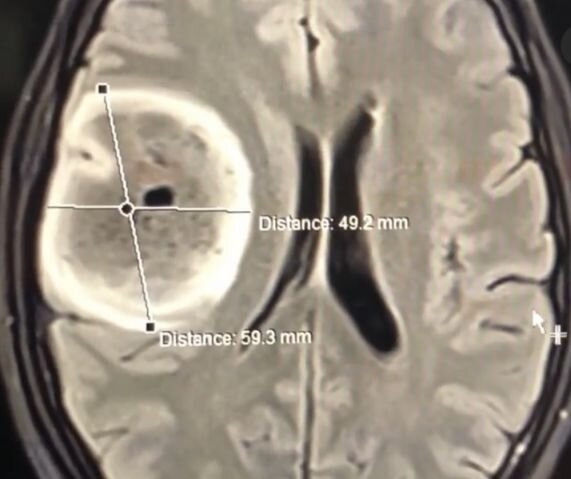Astrocytoma is a brain tumor
24 September 2023


24 September 2023


Astrocytoma belongs to primary brain tumors, and got its name because of the type of nerve cells it consists of - astrocytes. Astrocytes, or stellate neurons, got their name because of their resemblance to stars - many processes extending in different directions from the center of the cell. Their main natural function is to provide neurons with physical and structural support, together with other glial cells, participate in ensuring the physiological conditions of functioning (retention of oxygen and nutrients, regulation of the ion balance in the extracellular space, disposal of metabolic waste, immunological protection, etc.).
Astrocytomas are the most common among other neoplastic diseases of the central nervous system and account for approximately 50% of all types of brain gliomas. The occurrence of astrocytes does not depend on age, but is more common in men, mainly in the age group of 20-60 years. For women, the risk of glioblastoma increases in the postmenopausal period, and can be reduced by using hormone replacement therapy before menopause.
A more typical location of astrocytoma in adults is the brain, while in children and adolescents localization in subcortical structures (cerebellum, brainstem, optic nerve) prevails.
The causes of the development of astrocytoma are unknown, but provoking factors, especially against the background of a heavy family history of oncology, can be:
At the beginning of development, the symptoms of astrocytoma may be absent, but with an increase in the size of the tumor, in the vast majority of cases, the main complaint of patients is a headache - frequent, which is difficult to eliminate with painkillers, has a pressing or throbbing character. As the tumor progresses, the pain may become constant, accompanied by dizziness, nausea, vomiting that does not bring relief, seizures, the appearance of visual defects ("fog in front of the eyes", doubling of objects), decreased appetite, weight loss, cognitive disorders (reduced working capacity, weakness, apathy, a feeling of "exhaustion") are signs of increasing intracranial pressure. The presence and severity of the symptoms of astrocytoma depends on the stage of the tumor lesion, the degree of impaired circulation of the cerebrospinal fluid, and the localization of the tumor process. With growth and malignancy of astrocytoma, a convulsive syndrome joins the general symptoms, a focal neurological deficit appears, corresponding to the location of the lesion (so-called focus-dependent symptoms). You can read about cell-dependent symptoms here - https://oberig.ua/en/news/statti/oseredkovo-zalezni-simptomi-astrocitomi-874
Collection of medical history, complaints and physical examination of the patient is supplemented by a number of laboratory and instrumental studies in order to establish an accurate diagnosis:
Tumor diseases of the brain are extremely dangerous, so we recommend that you seek medical help in a timely manner from qualified neurosurgical specialists. In the universal clinic "Oberig" we have the opportunity to carry out diagnostics and treatment in accordance with the most modern achievements of neurosurgical science. The center of neurosurgery is headed by Andrii Oleksandrovich Danchyn, Doctor of Medical Sciences, neurosurgeon with 26 years of experience, Honored Doctor of Ukraine, author of numerous monographs and original methods of treating diseases of the central nervous system.
Call: 044 521 30 03 or sign up for a consultation on the website: https://my.oberig.ua/ua/appointment/
